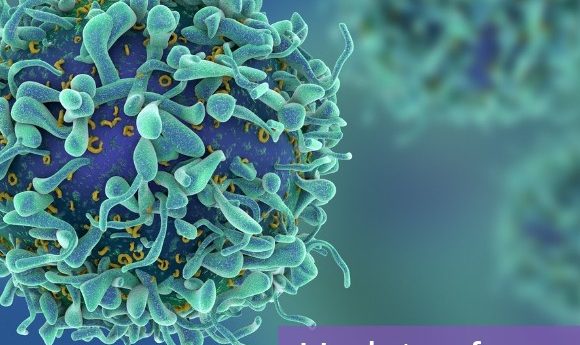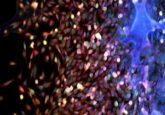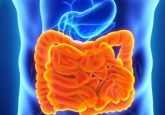AACR 2019 highlights and updates

What’s happening at our booth?
You can come and meet our Digital Editor, Abi Sawyer, at booth #4438. If you’re interested in subscribing, submitting or contributing to BioTechniques, come and meet us and we will be more than happy to answer any of your questions. As if that wasn’t enough to entice you, we also have lots of goodies to give away, including some BioTechniques branded flash drives.
Follow what’s happening on Twitter at @MyBioTechniques
Video highlights
Sunday 31 March 2019 was the first exhibiting day of AACR19. Highlights from Sunday of AACR19 include speaking to Manel Esteller (University of Barcelona, Spain) about the importance of epigenetics in cancer research. There was also a key talk on digitizing clinical assessments for outcome predictions, involving Peter Kuhn (USC, CA, USA) and Jorge Nieva (Keck School of Medicine, CA, USA). This combination of physicist and physician provided interesting perspectives from different corners of scientific research.
On Monday 1 April 2019, our second day at AACR19, there was a lot of buzz surrounding the keynote talk by James P Allison (MD Anderson Cancer Center, TX, USA) on making science count for patients, with a focus on immuno-oncology. The AACR presidential run of Liz Jaffee (Johns Hopkins School of Medicine, MD, USA) officially ended, passing the baton on to Elaine Mardis (Washington University in St. Louis, MO, USA) for the coming year. The BioTechniques team also spoke to Andrea Califano (Columbia University, NY, USA), a pioneer in systems biology, about how these methods are being utilized to improve precision medicine.
AACR top news
Excess body weight before age 50 is associated with higher pancreatic cancer mortality risk
BMI before age 50 may be more strongly associated with pancreatic cancer risk than BMI at older ages.
Lynch syndrome vaccine could be on the horizon
A cancer-preventative vaccine has shown promise for Lynch syndrome in a preclinical study.
Study points the finger at a common SNP for stroke risk in cancer survivors
A common gene variant has been implicated in increased stroke risk for childhood cancer survivors following cranial radiation therapy.
Nexcelom Bioscience (MA, USA) have announced the launch of their new automated cell counter, the CellacaTM MX.
Trending on Twitter
I used to read @MyBioTechniques as a grad student. I even contributed a short paper. I didn’t realize it has been revamped. Now in good hands with @aabisawyer #AACR19 pic.twitter.com/idGCKWS4Rl
— Thomas Tan, Ph.D. (@SENGLAITAN) March 31, 2019
Today’s #AACR19 dilemma: Really curious about the oral small-molecule PD-L1 agonists being presented this afternoon, but opting to hear about diet, exercise, metabolic health & #cancer prevention.
— Liz Highleyman (@LizCancerHealth) April 2, 2019
You agree with the wisdom of the #AACR19 / #AACR2019 crowd! We ran an informal poll at the @CancerDataLab booth. pic.twitter.com/mIQYTpmljs
— Casey Greene (@GreeneScientist) April 2, 2019
PD1 pandemonium @AACR #AACR19 ! So many #immunotherapy trials w/o biomarker. Need a deeper understanding of responders vs non-responders vs progressors vs hyper-progressors. pic.twitter.com/v3JIaLhPzS
— Vivek Subbiah, MD (@VivekSubbiah) April 1, 2019
Amazing to hear a shout out to computational sciences at the opening ceremony of #AACR19. We have certainly come a long way for cancer systems biology!!!!
— Dr. Elana J Fertig (@FertigLab) March 31, 2019
Elaine Mardis is now @AACRPres! We thank Liz Jaffee for her spectacular service over the past 12 months, and we look forward to working with Elaine to pursue our mission to prevent and cure all cancers. #AACR19 pic.twitter.com/oQMbgZU4E6
— Margaret Foti, PhD, MD (hc) (@AACR_CEO) April 1, 2019
For those at #AACR19, there’s going to be an amazing screening of the new Jim Allison documentary ‘Breakthrough’- It’s a FREE screening with a Q and A with the man himself. TODAY! Tue April 2nd at 6.30pm at Sydney J Marcus Auditorium @AACR #AACRAMC pic.twitter.com/KA7zmKnI6b
— Ken Dutton-Regester (@the_funkydr) April 2, 2019


